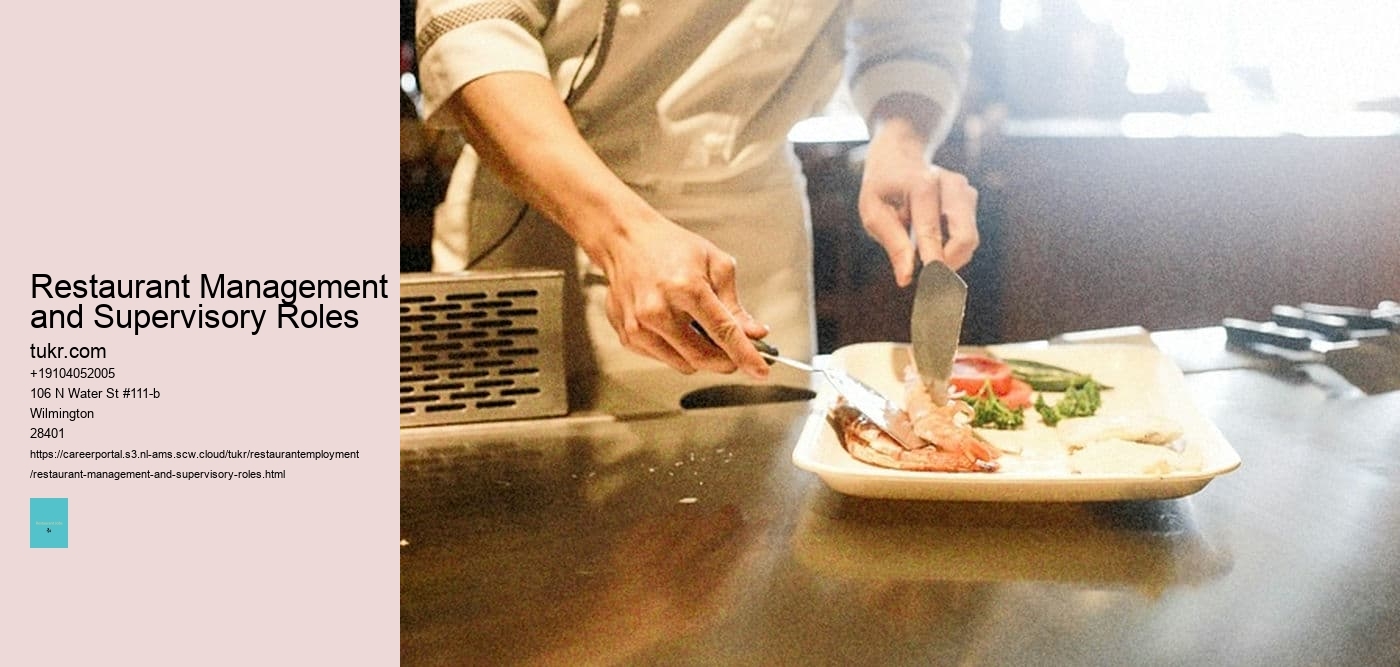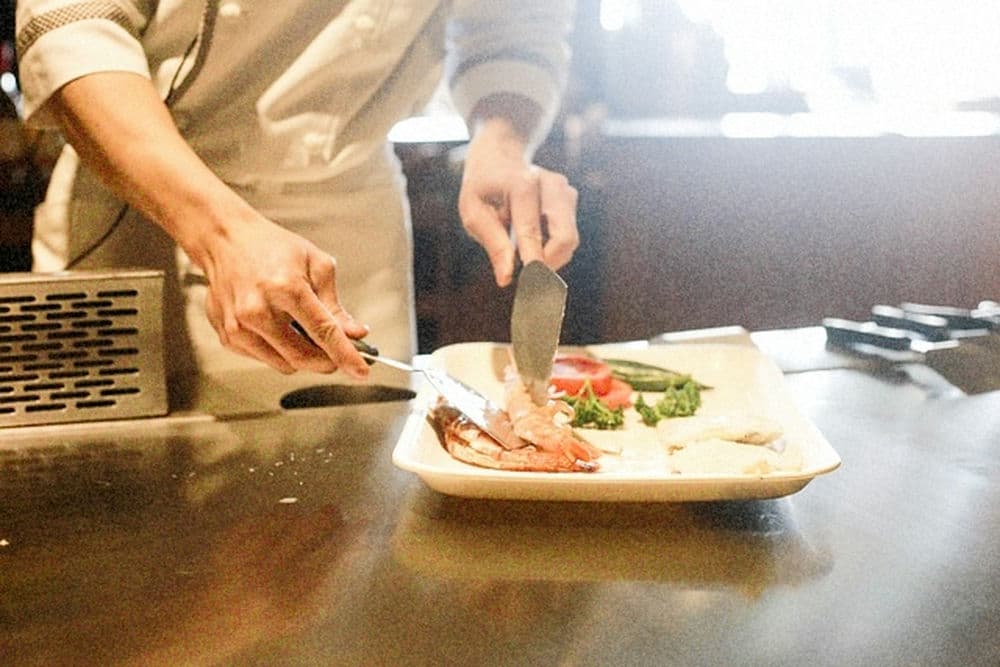

Restaurant management and supervisory roles are essential to the success of any dining establishment. These positions require individuals capable of multitasking, problem-solving, and communication skills. Managers must oversee all aspects of the restaurant, from developing menus to controlling costs, while supervisors ensure staff perform their duties effectively.
Managers are responsible for creating daily operations procedures and maintaining a positive atmosphere in the restaurant.
Restaurant managers and supervisors are responsible for overseeing the daily operations of a restaurant. As such, potential candidates must possess certain qualifications that make them suitable for these roles. These include strong leadership skills, excellent communication abilities, sound decision-making capabilities, knowledge of food safety protocols, and an understanding of budgeting and financial management. Additionally, restaurant managers and supervisors should be organized and have the capacity to multitask while maintaining a positive attitude. Any experience in hospitality or customer service is also beneficial. Ultimately, successful restaurant managers and supervisors must demonstrate the ability to motivate their teams to provide excellent service in order to ensure customers’ satisfaction.

Innovative roles in the restaurant industry have been evolving rapidly over time, opening up a wealth of new employment opportunities.. From traditional positions such as wait staff and line cooks to novel roles like sommeliers and social media managers, there is an array of exciting career paths that restaurants can offer their employees.
Posted by on 2023-11-27

Pursuing a career in the food service industry can be a rewarding and exciting experience, but it is also filled with challenges.. Securing restaurant employment opportunities is key to advancing in this field, yet it often requires dedication and perseverance.
Posted by on 2023-11-27

Working in a restaurant can be highly rewarding and provide a variety of benefits.. For starters, restaurant work offers the chance to interact with customers and build relationships.
Posted by on 2023-11-27

The future of restaurant employment opportunities is an exciting and dynamic topic.. As society and technology evolve, so too do the job prospects for those looking to enter the hospitality industry.
Posted by on 2023-11-27

Feast on Opportunity: The latest wave of jobs in restaurant employment provides an exciting chance to those seeking career advancement.. From dishwashers to servers, there are many options available for individuals looking to break into the food service industry.
Posted by on 2023-11-27
Restaurant managers and supervisors play a vital role in the success of any food service establishment. They are responsible for overseeing daily operations, making sure staff members are performing their duties, and ensuring that customer satisfaction is met. Managers must maintain a positive atmosphere while supervising staff and ensuring quality standards are upheld. Supervisors are also responsible for leading teams, maintaining records, dealing with customer complaints, and training new employees. Both roles require strong interpersonal skills as well as organizational abilities to ensure smooth functioning of the restaurant. In addition to these tasks, managers must often evaluate performance of team members and provide feedback as needed. Supervisors must also be able to motivate their teams to stay focused on the goals of the restaurant. Ultimately, it is up to restaurant managers and supervisors to ensure that customers have an enjoyable experience every time they visit the establishment.
Pursuing a career in restaurant management or supervision can be extremely rewarding. Not only do you gain valuable experience and knowledge, but you also have the opportunity to develop skills that are both personally and professionally beneficial. From managing staff to problem-solving complex issues, these roles provide excellent chances for growth. Furthermore, you can learn how to create an environment that promotes customer satisfaction while ensuring profitability. With this experience, you’ll be prepared to achieve success in many other areas of your life.
In addition to providing essential job training, working in the restaurant industry offers numerous benefits. For example, it allows you to explore different cultures and cuisines as well as build connections with customers from all walks of life. Moreover, being a part of a team provides invaluable support and motivation when tackling difficult tasks or long hours. Finally, taking on a leadership role enables you to develop important communication and organizational skills that will serve you well throughout your career.
Overall, a career in restaurant management or supervision is highly advantageous for anyone looking for personal and professional growth opportunities. You get comprehensive training while learning how to foster relationships and manage people effectively – all while having fun!
Restaurant managers and supervisors face a multitude of obstacles in their daily duties. From maintaining customer satisfaction to overseeing staff, there is no shortage of challenges for these important roles. Employees must be managed carefully to ensure they adhere to company policies and regulations while still providing excellent service. Additionally, managing finances and inventory can prove difficult with fluctuating costs and demand. To succeed in this role, managers and supervisors must possess excellent communication skills, problem-solving abilities, as well as an understanding of the industry's trends and changes.
Restaurant management and supervision roles require a great deal of dedication and effort from both employees and employers. Companies can support the development of their employees in these positions by providing adequate training, offering rewards for excellence, encouraging team-building activities, and fostering an open dialogue between staff members. Training should involve both technical aspects of the job as well as interpersonal skills such as customer service and problem-solving. Rewards should be given to recognize employee achievement, while team-building activities will help foster better communication among staff members.
Pursuing a career in restaurant management or supervision can be a rewarding experience for those interested in the hospitality industry. A successful individual in this field needs to possess excellent organizational and interpersonal skills, as well as knowledge of all aspects of restaurant operations.